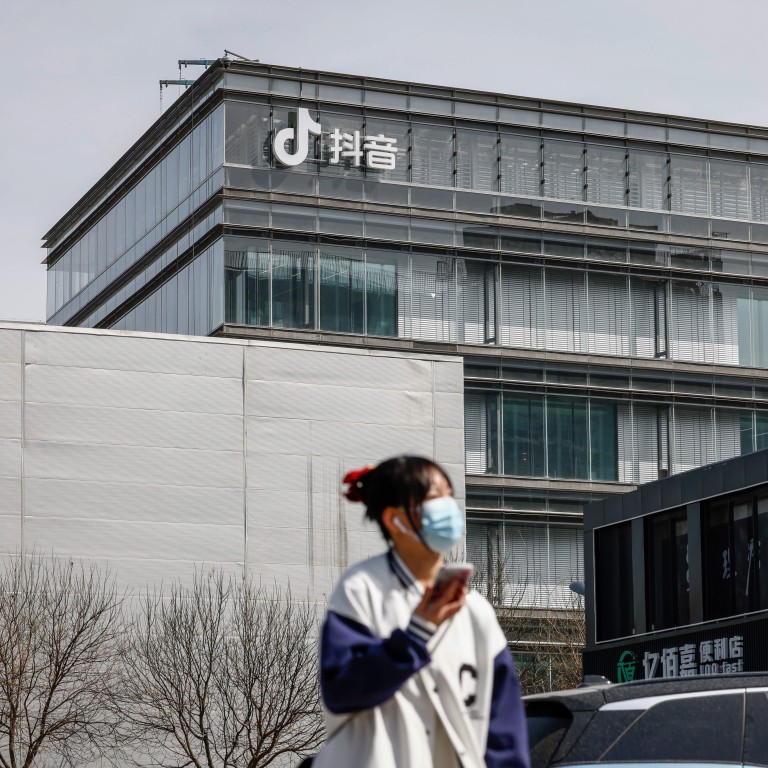Advertisement
Advertisement

Sales of TikTok owner ByteDance up over 30 per cent in 2022 to reach US$80 billion, matching Tencent’s revenue
- That double-digit growth, revealed in a recent memo to investors, topped most global internet leaders, including Meta Platforms and Amazon.com
- That pace of expansion underscores the resilience of ByteDance’s business at a time the US is threatening to join India in banning TikTok
ByteDance’s revenue surged more than 30 per cent to surpass US$80 billion in 2022, matching the tally at arch-rival Tencent Holdings after twin video platforms TikTok and Douyin drew eyeballs and advertisers from social media incumbents.
The world’s most valuable private tech firm told its investors in a recent memo that revenue surged from around US$60 billion in 2021, according to a person who saw the memo but asked to remain anonymous when discussing private information.
That double-digit growth topped most of the global internet leaders including Meta Platforms and Amazon.com. At the US$80 billion mark, ByteDance’s top-line is now almost on par with that of WeChat operator Tencent, which raked in 554.6 billion yuan (US$80 billion) last year. Representatives with ByteDance did not respond to a request for comment on its financials, which were first reported by The Information.
That pace of expansion underscores the resilience of ByteDance’s business at a time Washington is threatening to join India in banning TikTok, which a growing a number of government agencies across the world are wiping from official phones. TikTok and its Chinese cousin, Douyin, are siphoning ad dollars from other social media platforms because more cost-conscious marketers are shifting away from online media and toward faster-growing video services.
While global recession risks have taken a toll on technology companies, ByteDance had to deal with issues beyond just higher interest rates and inflation – particularly in the US and at home in China.
TikTok has amassed more than 150 million monthly users in America, spurring concerns about China’s access to the data it gathers. TikTok chief executive officer Chew Shou Zi last month sat through a hostile four-and-a-half-hour congressional hearing, during which he did little to sway some of his employer’s loudest critics.

Back home, ByteDance joined the likes of Alibaba Group Holding and Tencent to implement unprecedented cost curbs during a year of endless regulatory crackdowns and Covid restrictions. The Beijing company founded about a decade ago curtailed some of its riskier projects – including in gaming and venture investment. Douyin remains its biggest cash cow as the video forum evolved to become an all-in-one app with built-in purchases, online meal delivery and grocery features.
ByteDance’s still-robust growth could boost confidence among investors shaken by recent global events. The Chinese social media behemoth was valued at around US$220 billion in a recent private-market investment by Abu Dhabi AI firm G42, down from the US$300 billion that TikTok’s owner set during a September share buy-back programme.

Post

